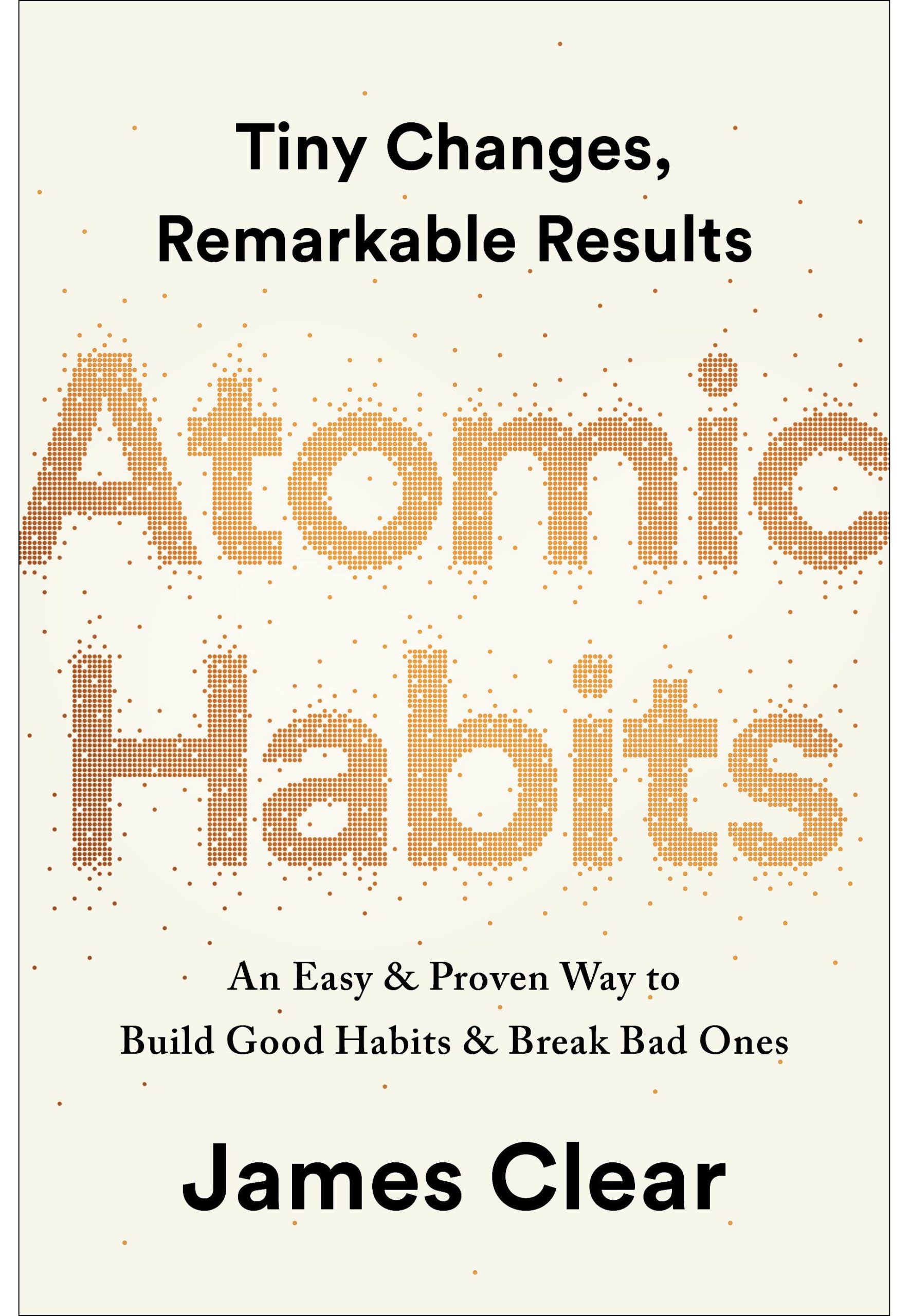If you enjoy self-improvement and are looking to build some good habits into your life, then consider picking up James Clear’s famous book Atomic Habits: An Easy and Proven Way to Build Good Habits & Break Bad Ones.
When this book first came out, I immediately put it into my Amazon shopping cart. A year later I finally purchased it, and a year after that I finally got around to reading it. (That’s par for the course for me. LOL) Of course, as soon as I read it I kicked myself for not reading it sooner.
In this post, I’ll share with you one big reason why I love this book, seven of the most impactful points I took away, and a few habits I’ve built both in my piano studio and personal life.
One Big Reason I Love This Book
One big thing I love about this book actually has a lot to do with its layout.
Every chapter has a summary at the end that highlighted 6 major points to take away. This was an incredibly helpful visual recap. I tried to force myself to highlight just one or two of those points in order to focus my takeaways even more.
At the end of the book, he even provides bonus chapters for how you can apply these principles to business and to parenting.
Application, application, application. Check!
Favorite Points/Quotes
Here are seven of the most impactful points/quotes I took away. Believe me, there were many more, but listing them all wasn’t going to do you ANY good.
A small amount for you to digest:
1
The most effective way to change your habits is to focus not on what you want to achieve, but on who you wish to become. (Chapter 2, page 41)
2
The process of behavior change always starts with awareness. You need to be aware of your habits before you can change them. (Chapter 4, page 67)
3
Habit stacking is a strategy you can use to pair a new habit with a current habit. (Chapter 5, page 79)
4
The most effective form of learning is practice, not planning…The amount of time you have been performing a habit is not as important as the number of times you have performed it. (Chapter 11, page 147)
5
Many habits occur at decisive moments—choices that are like a fork in the road—and either send you in the direction of a productive day or an unproductive one… The Two-Minute Rule states, “When you start a new habit, it should take less than two minutes to do.” (Example: Do you want to be a runner? Start running but don’t allow yourself to run for more than 2 minutes at a time.) (Chapter 13, page 167)
6
Habits are easier when they align with your natural abilities. Choose the habits that best suit you. (Chapter 18, page 227)
7
Habits deliver numerous benefits, but the downside is that they can lock us into our previous patterns of thinking and acting—even when the world is shifting around us. Everything is impermanent. Life is constantly changing, so you need to periodically check-in to see if your old habits and beliefs are still serving you. A lack of self-awareness is poison. Reflection and review is the antidote. (Chapter 20, page 249)
Habits in My Piano Studio
There are a few things that I’ve tried to implement into my professional practice – some in recent years and others after reading this book.
Personal practice:
- As soon as I enter my studio daily, I practice for at least 15 minutes.
Recurring once-per week tasks:
- Every Monday morning, I take care of these tasks:
- Mail out student birthday cards for the upcoming week
- Mail at least one other card, whether it be a thank-you card, sympathy, or just because. (It really helps to keep a variety of generic cards and a stack of blank cards to pull from rather than going to the store to get one whenever you want to send a card. This idea is from page 156 of the book).
- Do “bills.” That is, I double-check all incoming bills that are set to automatically payout from the past week actually processed, pay any one-time bills that have come in, and then once a month, I sit down and formally go through downloading all business and personal transactions and categorizing them into our budget in Quicken.
- Do any prep for the following Sunday’s church service.
Daily studio habits:
- At the end of the day, before I sit back down at my desk, I make sure the room is tidied and put back in order, the piano keys are disinfected, assignments are wrapped up and in order, and I punch through email quickly.
Personal Habits
We are more than just our profession, so here are a few personal habits I stick to that might inspire you to build some of your own.
- Make coffee for the next morning after doing the dinner dishes.
- Have a morning “chores” checklist (this takes me about 30 minutes)
- Unload dishwasher
- Tidy up the house from the previous evening
- Make the bed
- Start a load of laundry
- Run the dry mop quickly around the kitchen/great room area
- Plan dinner/do any prep needed, like taking things out of the freezer
- Fridays: Wash bed sheets every two weeks and pillowcases every week. On the last Friday of the month, I wash all bedding, including the blanket and mattress cover.
Have you read his “Atomic Habits” yet, and if so, what habits have been successfully built into your life?


